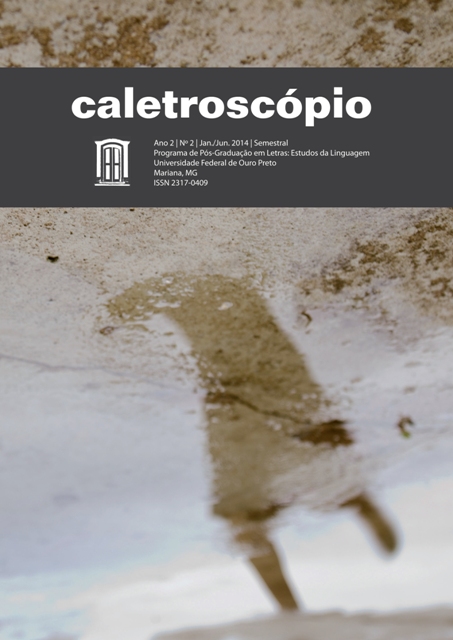The inverted Ion mirror: the path to truth-telling in the story of Padre Justino in Crônica da casa assassinada
Keywords:
Crônica da casa assassinada, Lúcio Cardoso, parrhesia
Abstract
Based on the ideas of Michel Foucault in the course The Government of Self and Others, I examine in this article the route of parrhesia, or truth-telling, attributed to the narrator Padre Justino in the five chapters of the novel Crônica da casa assassinada, by Lúcio Cardoso. From this perspective, my analysis focuses on two types of parrhesia, very similar to those from the play Ion, by Euripides identified and classified by Foucault as oracular and confessional. While such discourses in Ion have the function of creating a genealogy for the city of Athenas, in Crônica da casa assassinada the acts of parrhesia by Padre Justino and Ana Meneses have, as a whole, the opposite function, serving for the abolition of a family tradition.Downloads
Download data is not yet available.
Published
2014-06-23
Section
Artigos
The publication Caletroscopio shall retain for a period of three years all authorial rights for works accepted for publication: articles, reviews, translations, etc. Outside this restriction, these works are licenced through Licença Creative Commons-Atribuição-NãoComercial-SemDerivações 4.0 Internacional.
Upon expiry of this period, in the event that the author publishes the text, even when making alterations to the original, we would ask authors to include as a footnote, the information that a previous version of the article was published in the Revista Caletroscópio, citing the appropriate references.


